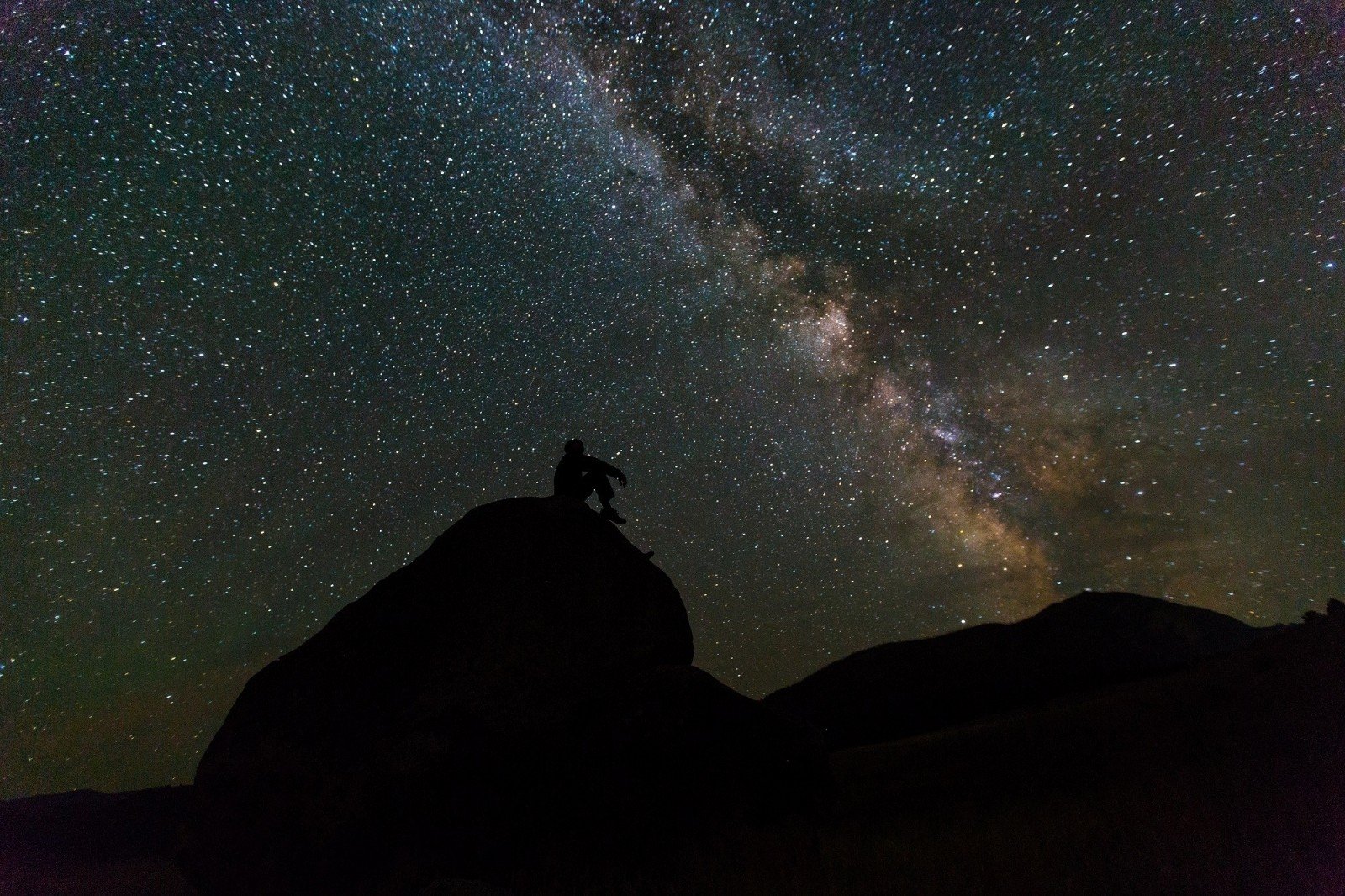Why Is There Something Rather Than Nothing?
Jonathan Gunnell
Posted on 2020-02-18T03:52:23.245Z

Why Is There Something Rather Than Nothing?
Great question. Many answers already exist, so I'm writing here a brief response from a Christian Transhumanist perspective. Transhumanism is about embracing the opportunities to transform ourselves and our species into the future. We are faced with a huge universe in both time and space, in which we seem insignificant. Humans are curious, always questioning, and seeking an answer to this primordial puzzle, "Why is there anything?". As such it's a vital underlying worldview question for both Transhumanism and Christianity.
Recently I came across a couple of relevant Sean Carroll podcasts [1] , and a paper [2] he wrote.
Carroll's paper in summary offers five possible answers to "Why is there something rather than nothing?"
- Creation (he uses the word "simulation" in his podcast, seemingly interchangeably)
- Metaverse (A different (but not very) concept from multiverse)
- Principle (Something special about reality that satisfies some underlying principle)
- Coherence (that "nothingness" is "incoherent")
- Brute Fact — that reality simply exists the way it does, without further explanation. That is, the laws of physics necessarily write themselves to cause the infinite multiverse(s) (or metaverse(s)).
The latter four all suffer from some version of the criticism of infinite regression ("turtles all the way down"), other than the last, which simply accepts it. So we are left basically with two choices: either accept infinite regression, or we look to some creative force that exists external to the chain of cause and effect that we perceive.
In criticizing creation (including simulation), Carroll writes:
While a creator could explain the existence of our universe, we are left to explain the existence of a creator. In order to avoid explanatory regression, it is tempting to say that the creator explains its own existence, but then we can ask why the universe couldn't have done the same thing. [2:1]
Actually, we already asked that question. The seeming impossibility of the universe "do[ing] the same thing" is why we started the quest for the first cause. Nothing in our universe appears prima facie as a good candidate for the end of seemingly infinite regression, nor does our universe seem the kind of place that such a thing could exist. No matter what "principle" or "self-writing laws" are posited, there is always a follow-on question, of "where did that principle come from?" or "what enabled laws to self-write?".
Not liking the obvious answer to this conundrum is a bad motivation to re-interpret our perceptions that caused us to ask the question.
In my talk to the 2018 CTA conference, I described the "first cause" more as "something external to the chain of cause and effect". We struggle to deal with infinities, as a painted figure struggles to deal with a dimension out of the plane of the canvas.
Humans live in four-dimensional space-time, yet we have strong grounds for suspecting there are in fact many more dimensions. Maybe the universe we experience is like a work of art, in the same way art may compress four dimensions to two or three.
Carroll concludes the paper with the possibility (or probability) that ultimately the universe could be unintelligible. Maybe there is an incompleteness theorem that states humans can never fully understand whatever it is we are experiencing. He puts it thus:
What we can't do is demand of the universe that there be something we humans would recognize as a satisfactory reason for its existence. [3]
In podcast ep 25 with David Chalmers (philosopher who coined the term "hard problem of consciousness") they expand on the idea of simulation. They go on to ask how a simulator (or a race of them) might communicate with us to let us know we are in a simulation. The requirement they suggest was to miraculously move the moon around or write a message in the sky.
Well, Christians think that the Simulator certainly did just that, through our moral instincts (in all their cultural variants) through our search for meaning, various prophets (Heb 1:1) and indeed through the resurrection of Jesus. These may not be "recognize[d] as a satisfactory" means of communication by Carroll, but are by many. (Globally, a majority.) It's nice that Chalmers seems to accept that is not an illogical position and doesn't join some atheists in ridiculing an intellectually defensible position.
So to summarise the position between Carroll and Simulation/Creationists, in the hope of further dialog, there are two choices:
- accept (either explicitly or implicitly by glossing over) the idea of infinite regression as a reality, or
- accept that this is philosophically incoherent, therefore there must be a creative (or simulative) force external to the universe we experience [4], coming from a place with a higher number of dimensions, such that we are in a "creation", a "simulation" or a "work of art".
In terms of the "experientialist space" of the universe we perceive being "wastefully large", well that's a value statement based on perception and evidence filters. Maybe we could re-conceive it as a lovely large blank canvas, on which to co-create an amazing future with our Simulator.
Carroll, Sean. Mindscape (or Preposterous Universe) Podcast, ep 9 & 25. ↩︎
Carroll, Sean. Why Is There Something, Rather Than Nothing? (direct link to PDF) ↩︎ ↩︎
ibid ↩︎
Do we need a new word for that? Our "experientialist space"? ↩︎
Guests
- Kevin Kelly
- NT Wright
- Science Mike McHargue
- David Deutsch
- Aubrey de Grey
- Frank Tipler
- Robin Hanson
- Robert Wright
- James Hughes
- Steve Fuller
- Liz Parrish
- Thomas Jay Oord
- Greg Boyd
- Philip Clayton
- Adam Ericksen
- Christian Piatt
- Paul Wallace
- Derek Flood
- Katharine Hayhoe
- Christopher Benek
- Robert Walden Kurtz
- Calvin Mercer
- Peter Enns
- Shannon Vyff
- Ron Cole-Turner
- Meghan O'Gieblyn